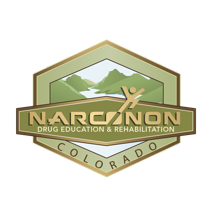How Do You Know if You are Addicted to Drugs and Alcohol?

Drug and alcohol addiction are some of the most pervasive public health issues of our modern society. Over the last 20 years, substance abuse has been a hot topic of conversation. It’s also been one of the biggest enemies families have faced. Addiction has affected more people than ever before and it’s become so normalized that it was once brushed under the carpet for fear of shame or embarrassment and now it’s openly discussed in meetings, support groups, on television, and among friends.
Currently, almost everyone in the U.S. knows someone who is or has struggled with addiction. It is no longer this hidden family secret that no one is willing to talk about. The sheer number of addicts is staggering, and likely many more are addicted who don’t realize it.
A question some people have is, “how do I know if I’m addicted to drugs and alcohol?” Some people might have had friends or family tell them their drinking or social drug use is a problem. It might be. I would say if people surrounding a person are concerned by their substance use, they may very well have a problem that’s getting out-of-control. Whatever the case is, it’s important to know the signs and symptoms of drug and alcohol addiction.
Symptoms of Addiction
- Using drugs or alcohol often, each day
- Intense cravings for drugs or alcohol
- Building a tolerance to drugs and alcohol, requiring more and more to get the desired effects
- Financial problems
- Being irresponsible leading to trouble at work, school, or with friends or family
- Engaging in risky behaviors while under the influence
- Stealing to get drugs
- Selling possessions to get drugs
- Not being able to stop using drugs or alcohol
- Withdrawal when stopping
- Poor hygiene
- Neglecting physical health
- Sleeping too much or too little
If you or someone you care about is experiencing any of the above symptoms, there is a chance that they are dealing with an addiction issue. Nowadays, so many people are addicted that it is not uncommon to possibly know quite a few people with substance abuse issues, and you very well might be one of them.
How to Help an Addict or Alcoholic

If a person finds themselves addicted to drugs or alcohol, all is not lost and there are things that can be done to help their situation. Life isn’t over at that point, but rather it can be fixed and a person can go back to actually living. Being addicted to drugs is merely surviving on a daily basis while endlessly and mindlessly consuming toxic substances in order to “survive.”
You can help an addict in the following ways:
- Do not enable their behavior if they are unwilling to get help
- Push them to go to drug or alcohol treatment
- Talk to their family if you notice warning signs of addiction
- Set a good example yourself
- Be positive and try to encourage them to help themselves
- Help them find resources to get help
- Conduct an intervention if they are truly unwilling to seek help
- Try not to get angry with the addict or alcoholic
While many of the above suggestions are easier said than done, they can be done, and they can help save the life of a person who will likely die otherwise. If any of the above applies to you, get help, get yourself into treatment and save your own life. If you’re even questioning your substance use to begin with, there’s more than likely an addiction brewing. No one needs to travel down the dark road of addiction and if you’ve already found yourself far down that dimly lit path, reach out for help. It’s far scarier to stay addicted than to get clean.
Sources Used:
https://www.mayoclinic.org/diseases-conditions/drug-addiction/symptoms-causes/syc-20365112
